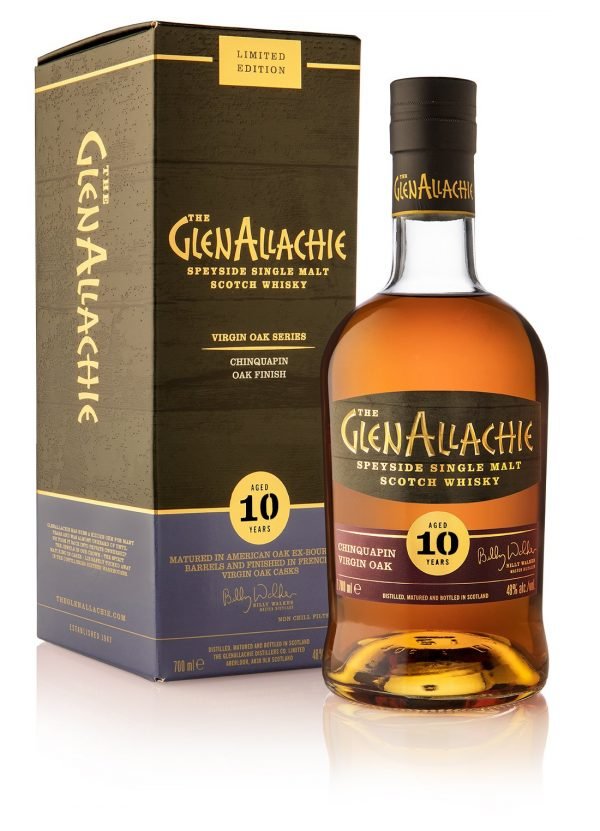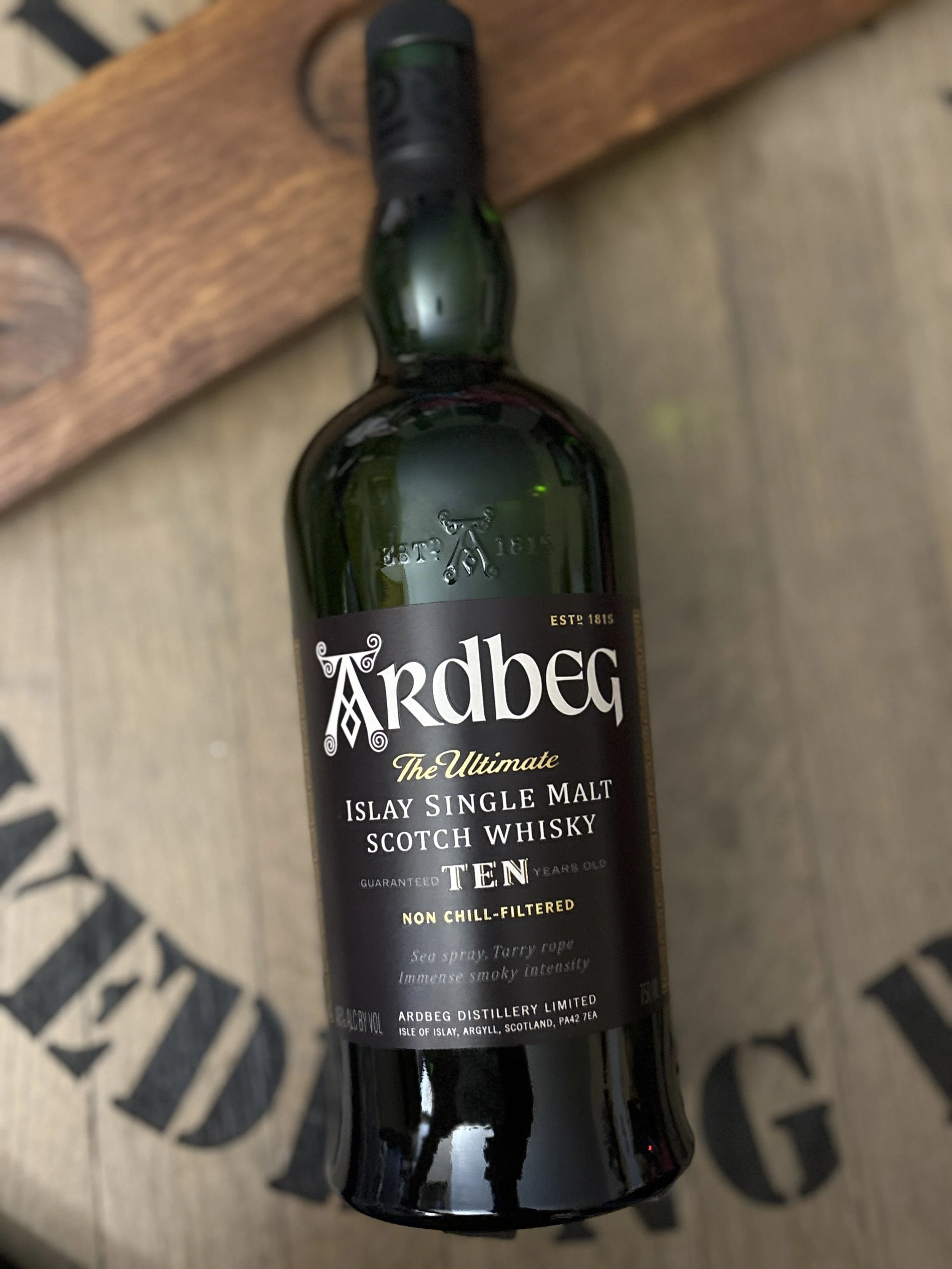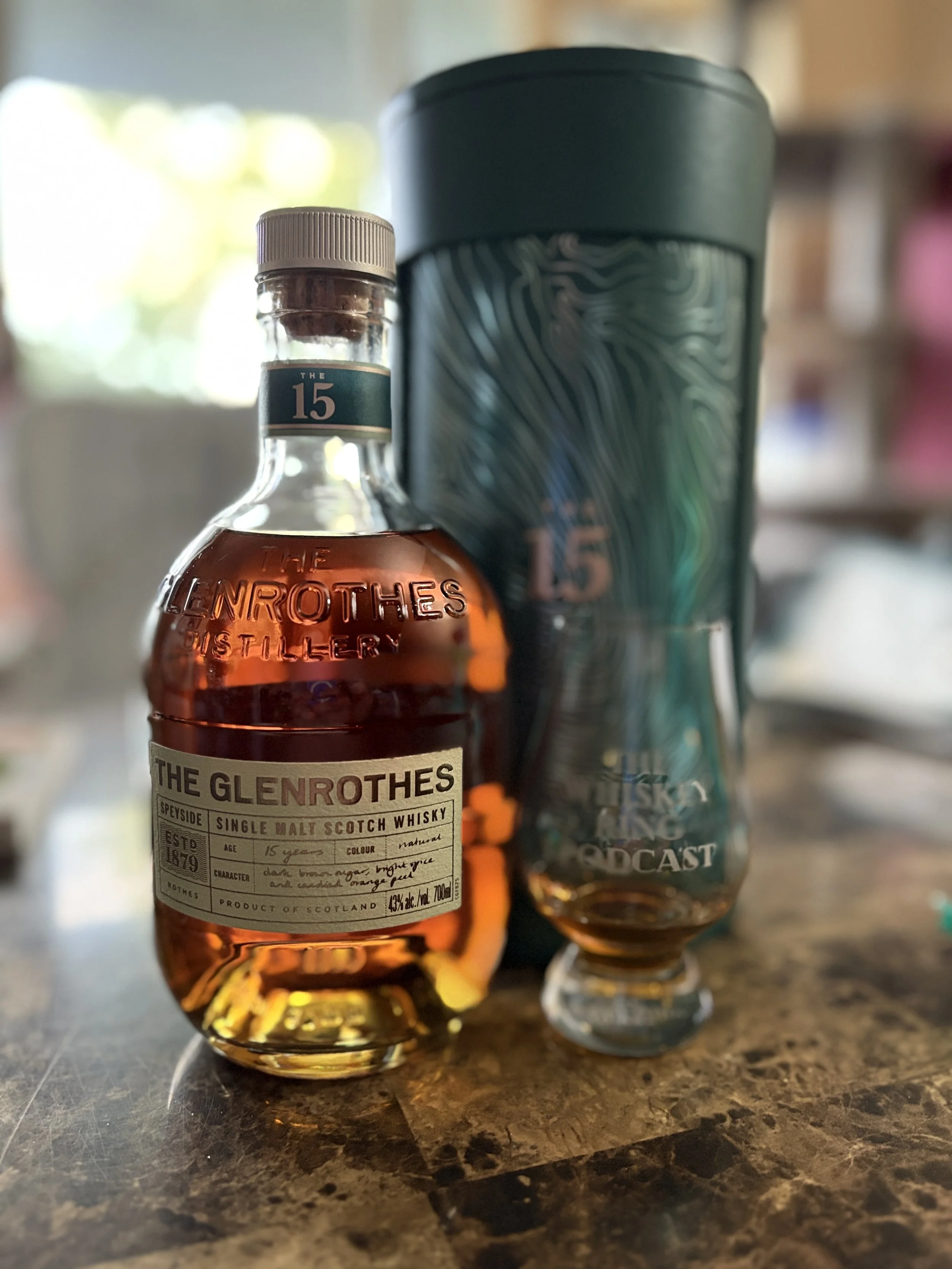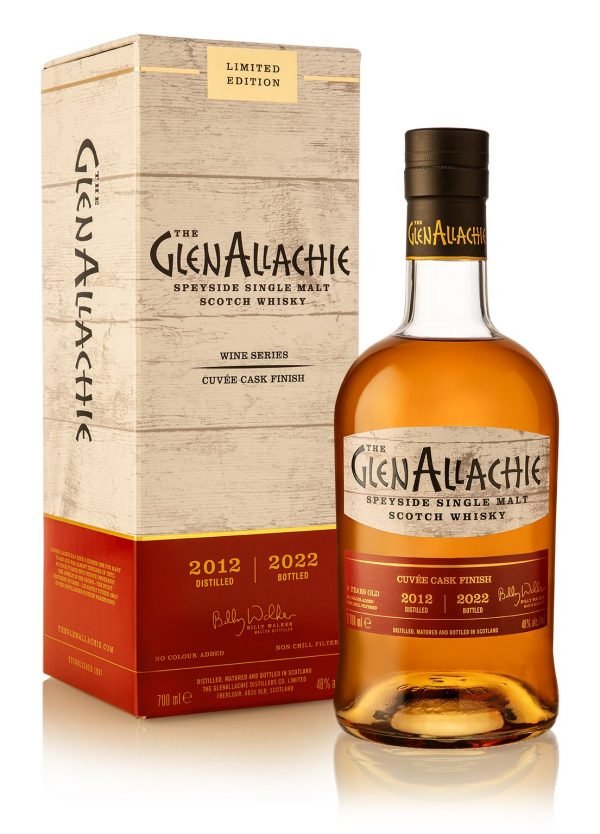The GlenAllachie 10 Year Old Chinquapin Virgin Oak
The GlenAllachie 10 Year Old Chinquapin Virgin Oak Single Malt Whisky Bottle. Photo credit: theGlenallachie.com.
The GlenAllachie Distillery introduced this series - the Virgin Oak - in October 2020, during the height of COVID. Owner Billy Walker, a 50-year veteran of the Scotch whisky industry, is fond of experimenting with The GlenAllachie, whether it be finishes, maturation, or other techniques (they also introduced a rum in recent years).
This one was notable for its use of Chinquapin oak (note: prior to 2017, this was also written as Chinkapin). A member of the white oak family, Quercus muehlenbergii is a dark hardwood that grows mainly in the eastern United States along the Ozarks and western Adirondacks. It can be found as far north as Maine and as far south as Texas, but those are outlying copses.
Quercus alba, or American White Oak, is the preferred oak species for whisky cooperage around the world, whether new cooperage (largely in the US) or re-used barrels outside the US. With that in mind, there are 60+ species of white oak growing in the US, making Q. alba less a specific choice and more a family of oak.
At first glance, Q. alba and Q. muehlenbergii are nearly indistinguishable. According to Becky Paskin’s article in Whisky Magazine, once sawn the only way to distinguish the two is through DNA testing. They grow largely in the same areas, with similar features and uses, but the latter - Chinquapin - grows less straight and on more difficult-to-reach landscapes. It grows slower and is less dense than white oak, making it still perfectly suitable for furniture but less so for whisky, which works through the wood’s pores more quickly.
Chinquapin imbues a sweeter, dark caramel/toffee note as opposed to the buttery vanilla and coconut of white oak. Its permeability, while worse for whisky-makers than white oak, isn’t as bad as mizunara, which leaks regularly and easily. There’s a deep rabbit hole to be pursued when talking about flavor profiles of different oak species, and those are just three of them. Keep going and you’ll get to Hungarian, French, and more.
There are a few whisky companies that still work with Chinquapin, most notably Michter’s in its Bomberger’s line. Fewer still are outside the US, with GlenAllachie being one of just two with dedicated line extensions including Chinquapin-aged whisky. Scotch isn’t known for using virgin (i.e. new/unused) oak anyway, preferring to use ex-bourbon barrels and wine casks for a longer, softer aging process.
With all that in mind, it’s worth looking at the whisky being aged here. The GlenAllachie (there’s a long story told elsewhere about why the “The” is important) is a Speyside whisky, well within the general profile of that region. It’s a bright, orchard fruit-led malt characterized by Golden Delicious apples and a light applewood influence, no smoke/peat, and an eminently drinkable texture. There’s also a milk chocolate undertone that I find in some, but not all, Speyside whiskies. Billy Walker and company are fond of this core, preferring to experiment around it rather than with it.
The Chinquapin is present throughout, from nose to finish, and brings each of the facets you expect. There’s a bit of smoke that’s a minor background player, like a smoked cocktail that uses applewood in the smoking gun but ultimately is more for show than for flavor.
Another wrinkle is that the Chinquapin isn’t the main maturation here. For Batch 2 of their Virgin Oak series, The GlenAllachie aged the whisky in ex-bourbon barrels before finishing in the Chinquapin for an additional 18 months. The Chinquapin is air-dried for four years and toasted, limiting the tannins and elevating the chocolate, marshmallow, and baking spice notes in the final product.
The GlenAllachie malt and the Chinquapin are, to put it bluntly, an odd pairing. It’s not bad by any means, but after trying it a few times I don’t get the sense that either adds to the other. There are parallel profiles going on, neither confounding nor complementing each other. There are better examples of The GlenAllachie finishing and maturation experiments. Again, not bad…just not quite right.
Thank you to ImpEx Beverages for providing a sample of this whisky free of editorial constraints.
The GlenAllachie 10 Year Old Chinquapin Virgin Oak Single Malt Whisky: Specs
Classification: Single Malt Scotch Whisky
Origin: The GlenAllachie Distillery
Mashbill: 100% Malted Barley
Proof: 96 (48% ABV)
Age: 10 Years Old
Location: Speyside, Scotland
The GlenAllachie 10 Year Old Chinquapin Virgin Oak Single Malt Whisky Price: $69.99
The GlenAllachie 10 Year Old Chinquapin Virgin Oak Single Malt Whisky Review: Tasting Notes
Eye: Amber, slightly hazy. Fading rims and quick irregular legs.
Nose: Spiced hot chocolate, only mildly sweetened. Caramel apples, graham crackers, and just a hint of proof. Apple darkness and sweetness grow, as does the oak…albeit mildly.
Palate: A little smokiness opens the palate, like using orchard wood in a smoking gun. White pepper, clear without overpowering. No proof on the palate but a uniquely Chinquapin-style oak that adds creaminess and accentuates the pepper. Mouthfeel is full-bodied, with dark cola syrup and a lacquering finish as the apple reasserts itself.
Finish: A thin but persistent coating carries applewood and white pepper all the way to the end.
Overall: The Chinquapin is there throughout, less dominant than in a Bomberger’s. It’s an intriguing pairing at first glance, but one that ultimately doesn’t make the sum better than the parts. Solid, but doesn’t quite meet its own expectations.
Final Rating: 6.1
10 | Insurpassable | Nothing Else Comes Close
9 | Incredible | Extraordinary
8 | Excellent | Exceptional
7 | Great | Well above average
6 | Very Good | Better than average
5 | Good | Good, solid, ordinary
4 | Has promise but needs work
1-3 | Let’s have a conversation










